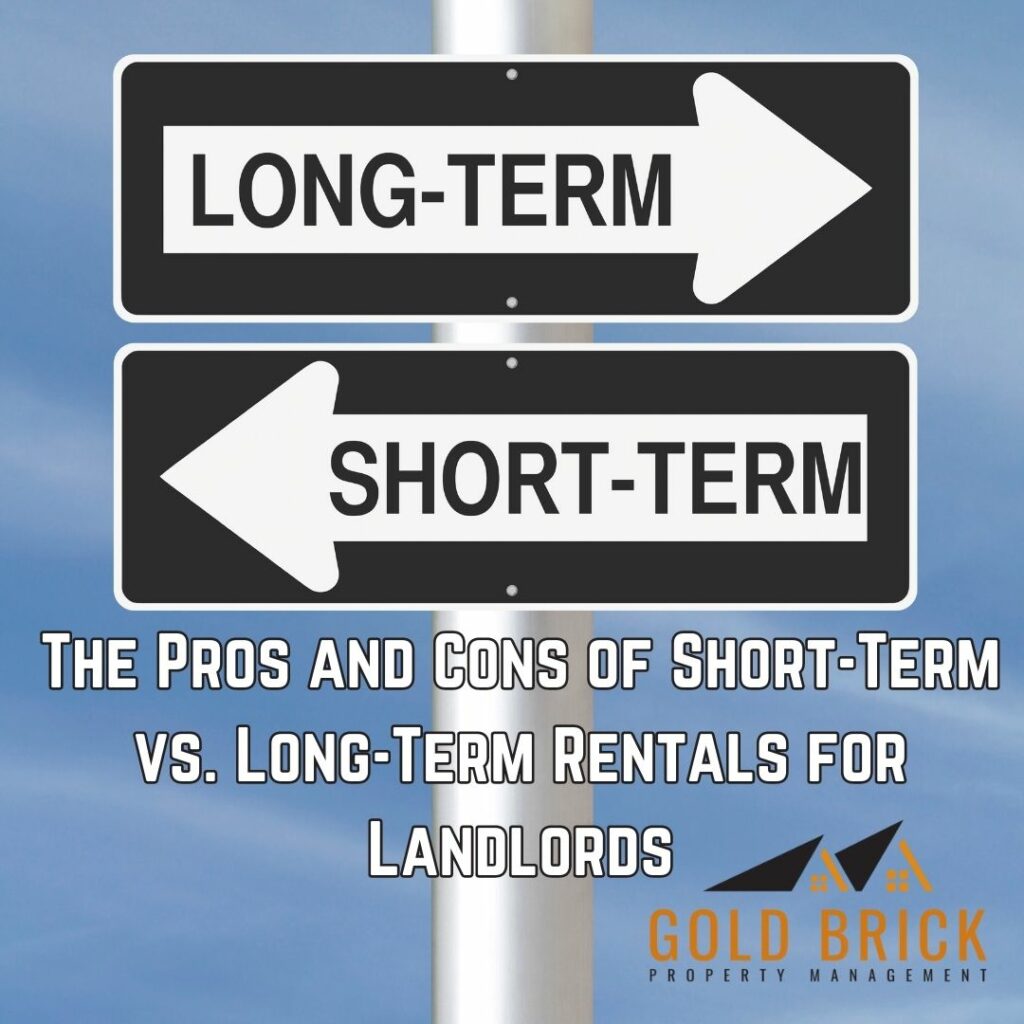The Pros and Cons of Short-Term vs. Long-Term Rentals for Landlords

As a landlord, one of the critical decisions you’ll face when renting out your property is whether to opt for short-term rentals (such as vacation rentals) or long-term rentals (such as traditional year-long leases). Both options have advantages and disadvantages, and it’s essential to carefully consider the pros and cons of each before making a decision. This blog will explore the benefits and drawbacks of short-term and long-term rentals for landlords.
Short-Term Rentals:
Pros:
- Higher rental income: Short-term rentals generally command higher nightly rates than long-term rentals, especially in popular tourist destinations or urban areas.
- Flexibility: Short-term rentals provide more flexibility in terms of availability, allowing landlords to use their property for personal use or to accommodate friends and family.
- Potential for higher occupancy rates: With short-term rentals, landlords can achieve higher occupancy rates, especially during peak seasons or events, which can result in increased rental income.
- Greater control over property: Landlords can closely manage their short-term rentals, including guest screening, maintenance, and cleaning schedules, to ensure the property is well-maintained and meets their standards.
Cons:
- Higher turnover and increased workload: Short-term rentals require frequent turnover and cleaning between guests, which can be time-consuming and labor-intensive for landlords.
- Seasonal demand: Depending on the location, short-term rentals may experience fluctuating demand with low bookings during off-peak seasons, resulting in potential income variations.
- Legal and regulatory considerations: Short-term rentals may be subject to local regulations, permits, and taxes, which can be complex and require ongoing compliance efforts.
- Higher expenses: Short-term rentals may incur higher expenses such as utilities, maintenance, and cleaning costs, which can impact the overall profitability.
Long-Term Rentals:
Pros:
- Stable rental income: Long-term rentals typically offer a stable rental income with consistent monthly payments, providing landlords with reliable cash flow.
- Lower turnover and reduced workload: Long-term rentals generally require less turnover and maintenance than short-term rentals, resulting in a reduced workload for landlords.
- Fewer legal and regulatory considerations: Long-term rentals are typically subject to less stringent regulations and permits compared to short-term rentals, which can simplify the compliance process.
- Lower expenses: Long-term rentals may have lower expenses, such as utilities and turnover costs, compared to short-term rentals, potentially improving the overall profitability.
Cons:
- Lower rental income: Long-term rentals generally have lower rental rates than short-term rentals, resulting in potentially lower overall income.
- Less flexibility: Long-term rentals typically require longer lease commitments, limiting flexibility for landlords to use the property for personal use or make changes to rental terms.
- Limited control over property: Landlords may have limited control over their property, including tenant selection, as long-term tenants may have more rights and protections under local laws.
- Potential for vacancy and turnover costs: Long-term rentals may experience vacancy periods between tenants, resulting in potential loss of rental income and turnover costs.
The decision between short-term and long-term rentals for landlords depends on location, market demand, personal preferences, and financial goals. Short-term rentals offer the potential for higher rental income and greater flexibility. Still, they may require more management and come with legal and regulatory considerations. On the other hand, long-term rentals provide stable rental income and lower turnover costs. Still, they may have lower rental rates and limited control over the property.
Landlords must carefully evaluate each option’s pros and cons and consider their specific circumstances to make an informed decision that aligns with their investment objectives. Consulting with a qualified real estate professional or property management company is a great place to start because they will understand the local market and potential laws and regulations that might influence the decision.
